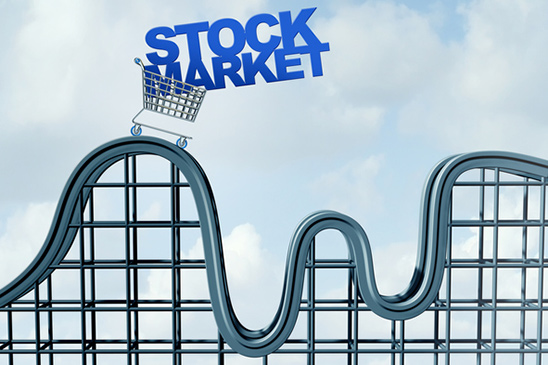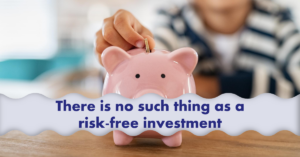The war in Ukraine has introduced uncertainty to a stock market that’s already had a shaky start to the year. Panic-selling for long-term investors almost always ends poorly. Investors who kept their wits during the 2008 financial crisis ended up not only recouping their losses but also earning excellent returns as well.
In addition to market nuances, investors have to bear and overcome the Great Investment Paradox: Returns are almost always positive in the long term but anything and everything can go wrong in the short term. Because given enough time, there’s nothing that the stock market hasn’t overcome.
Pop Quiz
The BSE Sensex is down 11.38% from its January 17th closing high of 61,308.91 points. If asked, we are sure you can come up with logical reasons to explain this market downturn. Reasons like:
- The Russia – Ukraine conflict.
- The price of Brent crude oil crossing $100 per barrel (after more than 7 years)
- The expectation that the US Federal Reserve Bank will hike interest rates.
- FIIs selling Indian stocks.
Here’s a more difficult exercise: What was the story behind the 14% drawdowns in 2018, the 16% drawdown in 2015, the 26% drawdown in 2011, or the 29% drawdown in 2006 when we were in the middle of one of the best bull runs of our life?
If you’re like me, then you probably found it difficult to remember exactly what caused the stock market to fall during each one of these years.
The objective of this question is not to imply that the factors causing investors and the markets to lose confidence during those time periods weren’t substantial.
Instead, the point being made is that market downturns, corrections and even bear markets occur regularly. And very often, they’re so transitory that the influences presumed to be driving those market downturns prove to be insignificant. So much so, that we hardly remember them.
The Ever Elusive Siren: Timing The Market

Source: Internal Calculations based on data from www.besindia.com
As visible in the chart above, if you stayed invested in equity from 1st January 1990 to 31st March 2021, you would have earned a compounded annual return of 14.18%.
However, if you tried to time the market, you risked missing out on some of the top grossing days. If you missed the 10 best days, your returns would fall to 10.54%. That would further drop to 7.83% if you missed the 20 best days.
When you exit the market at a low, not only do you cement your losses but also stand to lose out on the rally that follows.
Downturns Can Be Opportunities
Our research shows that the worst days are often followed by the high appreciation days, that too, often within two weeks. For example, a 12.98% market drop on March 23, 2020 was followed by an 8.76% market gain on April 7, 2020.

Many of us are aware of the investment ideal to buy low and sell high. Market downturns and corrections can provide a window of opportunity to invest in high-quality funds at lower valuations.
Very valid concern: The market could fall further. The fact of the matter is, no one can foresee the future. The markets may rebound from here or they may not.
What historical evidence shows us is that your return prospects will improve as your investment duration increases.

As we can see in the chart above, for an investment duration of 5 years or more, the instances of negative returns are 0% for the Nifty 50 TRI since 30 June 1999.
Reviewing Your Portfolio
Regardless of market movements, long-term investors are better off not looking at their portfolios too often for the same reason that dieters shouldn’t weigh themselves hourly. Like the stock market, it’s typical for your weight to vary throughout the day as you consume and expel food and water. Weighing yourself every hour can mess with your emotions and impact your thinking. You may start to indulge or restrict depending on the scale readings and lose sight of the big picture. Repeatedly checking your portfolio can create a similar effect and is therefore a bad idea.
Would Have, Should Have, Could Have
Don’t think in ways that cause regret. For example,“I should have sold some funds a few months ago” or “I should have seen this coming.” No one can predict the future. Brooding on actions we didn’t take or should have taken is counterproductive.

The Crux Of The Matter
Anything can happen at any time causing the stock market to fall. A fourth Covid wave could be worse, supply chain disruptions could persist, tighter monetary policy may not be well received, inflation might not cool down any time soon, the Russia-Ukraine conflict might expand… The market could also drop for no apparent reason.
If you’re not able to stomach short-term volatility or if your portfolio can’t handle short-term unrealized losses, then investing in the stock market might not be for you.
If you’re unable to digest volatility in the short run or if your portfolio can’t bear short-term unrealized losses, then investing in equity may not be the right choice for you.
Being able to financially and temperamentally withstand these short term shocks is the cornerstone to long term wealth.




